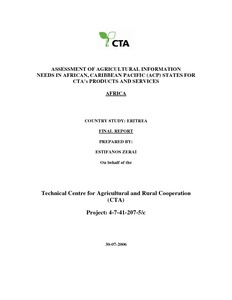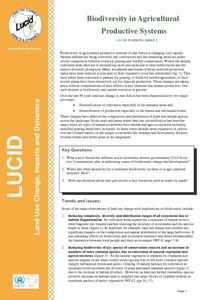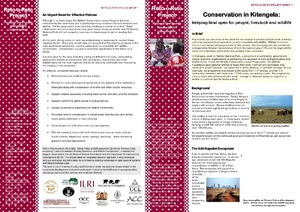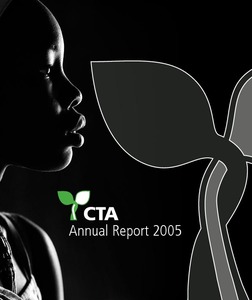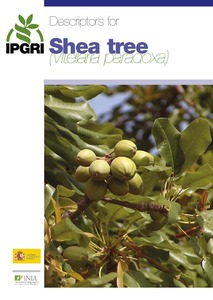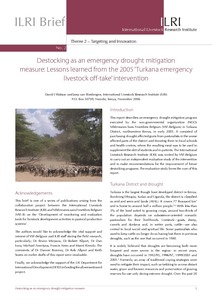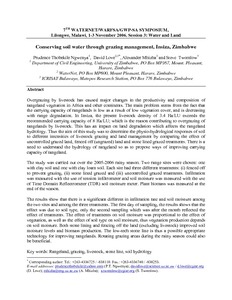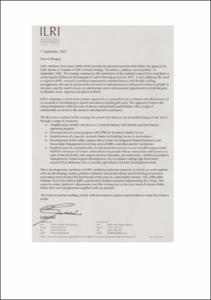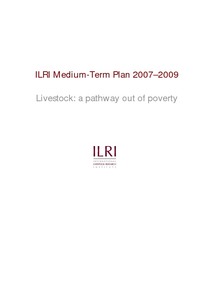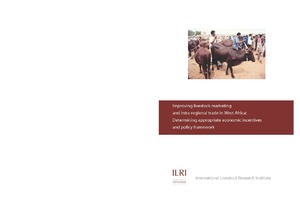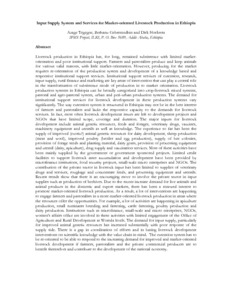Biodiversity in Agricultural Productive Systems
Conservation in Kitengela: keeping land open for people, livestock and wildlife
CTA Annual Report 2005
As an organisation, we look forward to ensuring continuity of professional services to our partners and ACP beneficiaries in the coming years as well as continuing with existing endeavours and embracing new opportunities as they may arise.
Destocking as an emergency drought mitigation measure: lessons learned from the 2005 'Turkana emergency livestock off-take' intervention
This report describes an emergency drought mitigation program executed by the non-governmental organization (NGO) Vétérinaires Sans Frontières Belgium (VSF-Belgium) in Turkana District, northwestern Kenya, in early 2005. It consisted of purchasing drought-affected goats from pastoralists in the worse affected parts of the district and donating them to local schools and health centres, where the resulting meat was to be used to supplement the diet of students and in-patients.
Effects of grazing management on rangeland soil hydrology Insiza Zimbabwe
ICTs for Natural Resource Management
Technical information
ILRI medium-term Plan 2004–2006: Livestock—A pathway out of poverty
ILRI Medium-Term Plan 2007–2009. Livestock: a pathway out of poverty
Improving livestock marketing and intra-regional trade in West Africa: determining appropriate economic incentives and policy framework
Input supply system and services for market-oriented livestock production in Ethiopia
Livestock production in Ethiopia has, for long, remained subsistence with limited market-orientation and poor institutional support. Farmers and pastoralists produce and keep animals for various valid reasons, with little market-orientation. However, producing for the market requires re-orientation of the production system and development of a knowledge based and responsive institutional support services.

